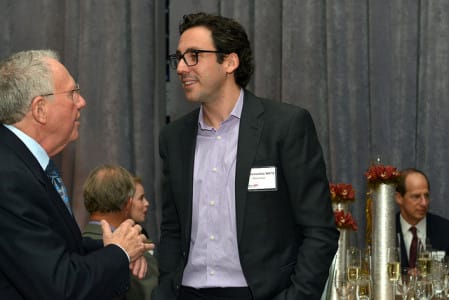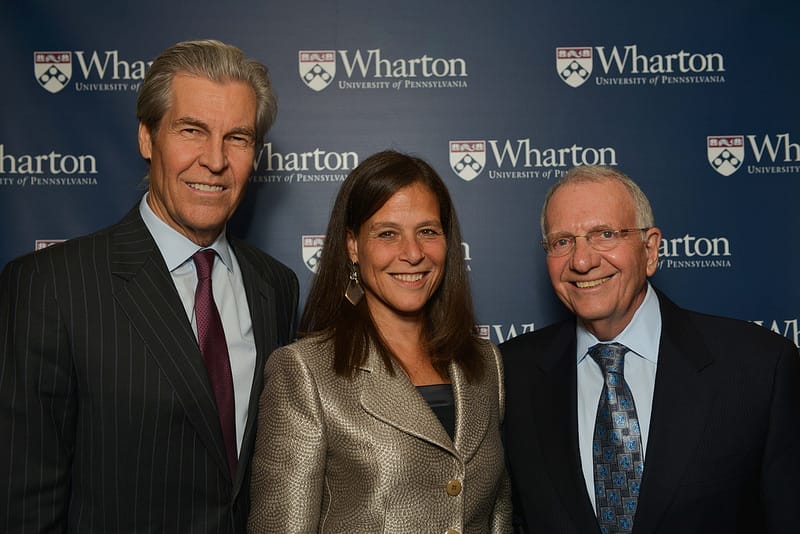History never repeats itself in detail, but the future can look eerily similar to the past sometimes—in a hyper-technologized way.
That was the theme of Terry J. Lundgren’s speech at a Nov. 19 Wharton event celebrating the 10-year anniversary of the Jay H. Baker Retailing Center.
Lundgren, who has served as chairman, president and chief executive officer of Macy’s Inc. since 2004, and has worked in the retail business for four decades, recalled how retail “in the day” was about knowing one’s customers. When the business advanced, and store chains grew larger and spread across the country, that changed.
“Frankly, we really didn’t know our customers,” he told an audience made up of retail executives and entrepreneurs, Baker friends and family, and Wharton faculty and students.
Technology today—social media and analytics, to name the biggies—are changing this yet again.
They empower a return to the customer relationships and to the knowledge of the customer stores had in the past—at a rate and at a depth unpredictable even five years ago, he said.
Mobile apps allow retailers to know what you like based on your shopping and browsing patterns; Facebook and Pinterest allow you to tell them yourself.
Rhetorically asking where retail will be five years hence, Lundgren declined to predict the future, but he indicated who would be driving it—the millennials, the retail industry’s youngest workers and current students, particularly Wharton students. Lundgren proudly announced that Macy’s was a top recruiter at Penn, having hired 36 students from the most recent class.
It was not a stretch to say that that recruitment effort would have been impossible without the man of the hour: Jay Baker, W’56.
Baker is known to say of his success that he has been lucky. But President Amy Gutmann, HOM’04 said of the “incomparable” Baker and his success in the retail business:
“He is ferociously dedicated, ferociously devoted to his industry.”
After all, his success at the helm of Kohl’s Corp., leading the department store chain through a period of dynamic growth and innovation, can be attributed to his staying power, as well as him being “the smartest and savviest” of execs—and one of the most genuine—said Penn’s president. Baker became president of Kohl’s in 1986, when it was a 39-store, Milwaukee-based regional retailer. By the time he retired in 1999, the company was a $3.8 billion organization with 300 stores nationwide.

Baker connecting with Neil Blumenthal, WG’10, co-founder of eyeglass retailer Warby Parker
In his 10 years overseeing the Baker Center, Baker has applied that same energy, creativity and influence.
“He is also ferociously dedicated to ensuring Wharton’s role in that industry,” Gutmann said.
That, after all, is the mission of the Baker Center—to ensure that Wharton attracts the best young minds and trains them to become leaders of the retailing industry, while encouraging bonds between academy and practitioners and research to benefit both.
“We’ve been able to get the industry and academia to work together. It’s something we’ve nurtured and built, and it’s really working now,” Baker told us during an interview for an article about the retail industry and the Baker Center in our fall 2013 Wharton Magazine.
Editor’s note: You can learn more about Baker and his role in launching the Baker Retailing Center in our article “10 Years Into the Revolution.” And see additional photos from the 10th anniversary gala at the Wharton Flickr set.

























